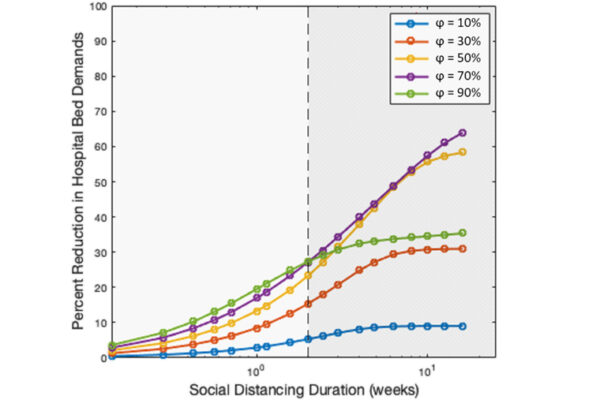Social distancing and COVID-19: A law of diminishing returns
Modeling from the McKelvey School of Engineering at Washington University in St. Louis shows how social distancing could have better been implemented. The key? Longer periods of distancing would have helped — but only to a point. More needed to be done.
An emerging understanding of smell
Engineers at Washington University in St. Louis have found that a neural model based on the act of a bug smelling something showed emergent properties, properties similar to those seen in an insect’s antennal lobe, an important area for its sense of smell.
Preventing lead spread
While lead pipes were banned decades ago, they still supply millions of American households with water each day. A team of engineers at Washington University in St. Louis has developed a new way to track where dangerous lead particles might be transported in the drinking-water supply during a common abatement procedure.
Computer models suggest planetary and extrasolar planet atmospheres
What’s beyond the solar system? Astronomers say there are planets similar to ours “out there”.The world is abuzz with the discovery of an extrasolar, Earth-like planet around the star Gliese 581 that is relatively close to our Earth at 20 light years away in the constellation Libra. Bruce Fegley, Jr., Ph.D., professor of earth and planetary sciences in Arts & Sciences at Washington University in St. Louis, has worked on computer models that can provide hints to what comprises the atmosphere of such planets and better-known celestial bodies in our own solar system. New computer models, from both Earth-based spectroscopy and space mission data, are providing space scientists compelling evidence for a better understanding of planetary atmospheric chemistry.



